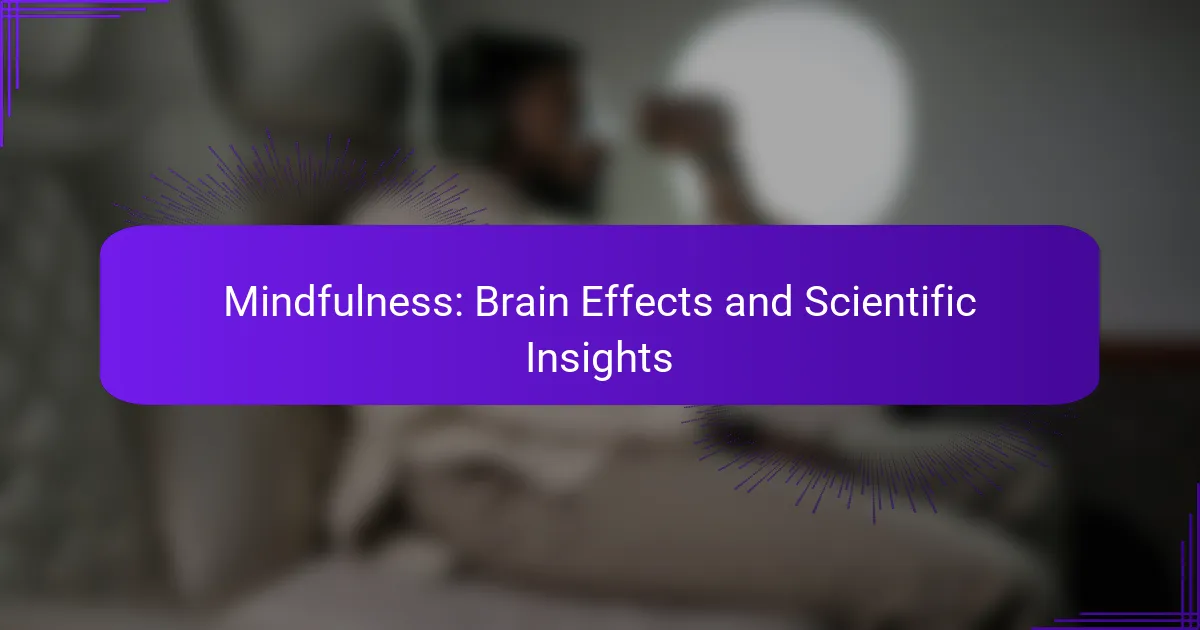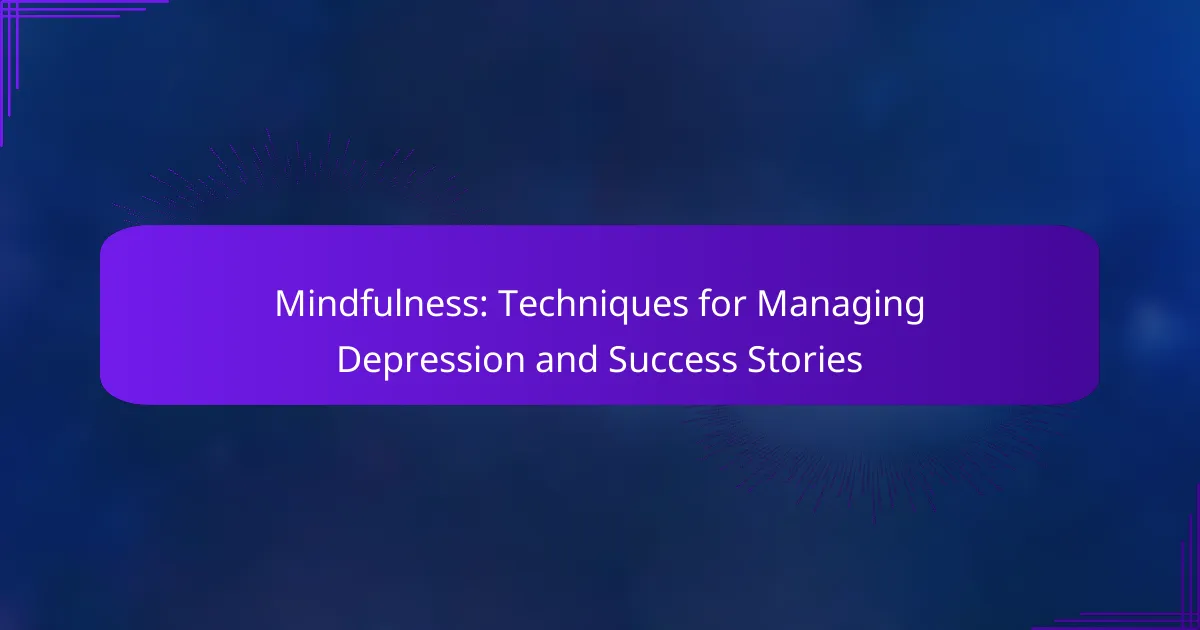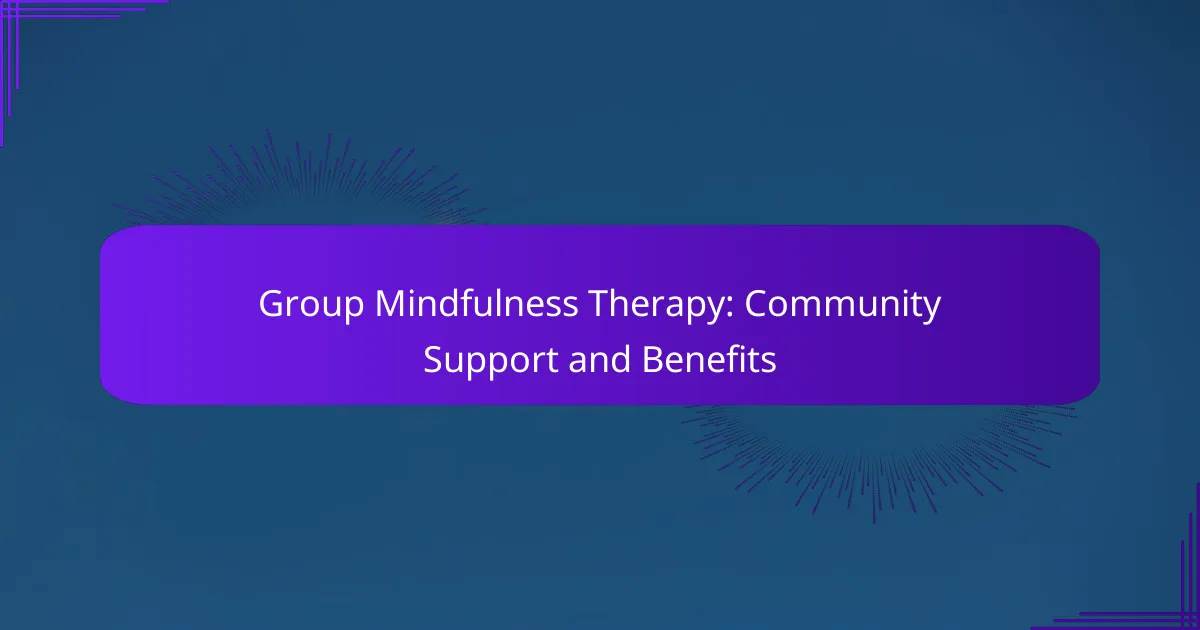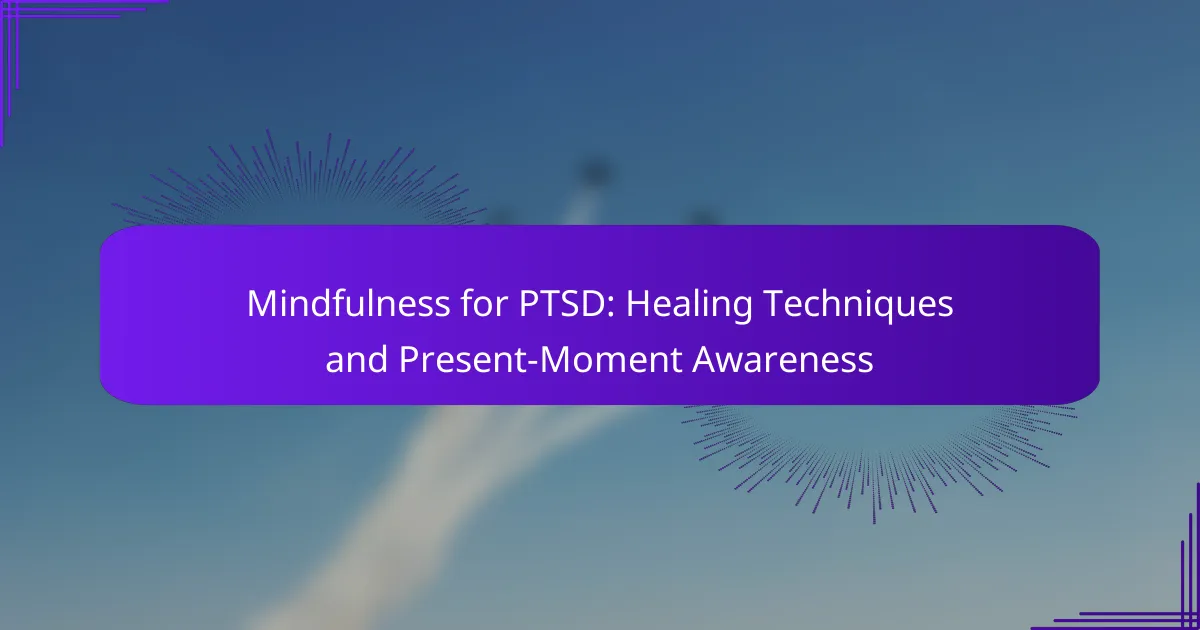Mindfulness has been shown to positively impact the brain by fostering structural and functional changes that enhance mental well-being. Scientific studies reveal that regular mindfulness practice can increase gray matter density, improve emotional regulation, and reduce stress, ultimately promoting better mental health and cognitive function.
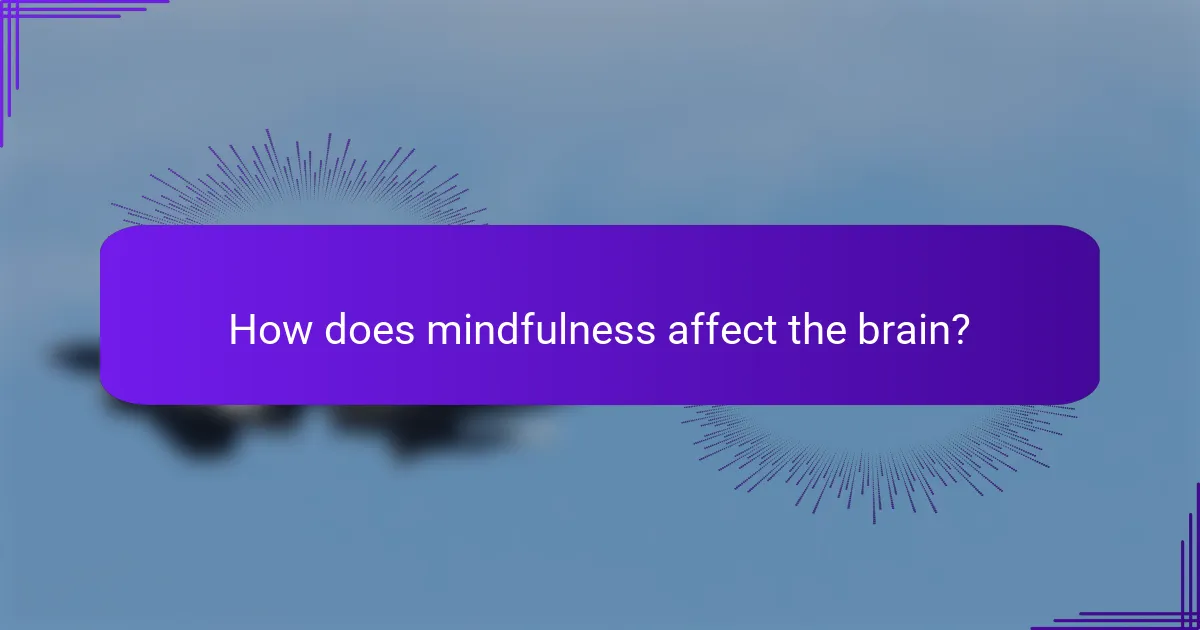
How does mindfulness affect the brain?
Mindfulness positively impacts the brain by promoting structural and functional changes that enhance mental well-being. Regular practice can lead to increased gray matter density, improved emotional regulation, better focus, and a reduced stress response.
Increased gray matter density
Mindfulness practices have been shown to increase gray matter density in areas of the brain associated with memory, learning, and emotional regulation. This structural change typically occurs in regions such as the hippocampus and prefrontal cortex, which are crucial for cognitive functions.
Studies suggest that even a few weeks of consistent mindfulness meditation can lead to measurable increases in gray matter. Engaging in mindfulness for 20-30 minutes a day can be a practical approach to achieving these benefits.
Enhanced emotional regulation
Mindfulness enhances emotional regulation by fostering awareness of one’s thoughts and feelings without immediate reaction. This practice helps individuals recognize emotional triggers and respond more thoughtfully, leading to improved interpersonal relationships and reduced emotional reactivity.
Practicing mindfulness techniques, such as deep breathing or body scans, can help cultivate this awareness. Over time, individuals may find it easier to manage their emotions, leading to a more balanced and resilient mindset.
Improved focus and attention
Mindfulness training can significantly improve focus and attention by strengthening the brain’s ability to concentrate on tasks. Regular practice encourages the brain to filter distractions more effectively, allowing for sustained attention on the present moment.
Incorporating mindfulness exercises, such as focused breathing or mindful walking, for just a few minutes daily can enhance cognitive performance. This can be particularly beneficial in environments with numerous distractions, such as workplaces or busy households.
Reduced stress response
Mindfulness reduces the body’s stress response by promoting relaxation and decreasing levels of the stress hormone cortisol. This effect can lead to lower anxiety levels and an overall sense of calm.
Engaging in mindfulness practices, such as meditation or yoga, can help individuals manage stress more effectively. A consistent routine can lead to long-term improvements in stress management, making it easier to cope with daily challenges.
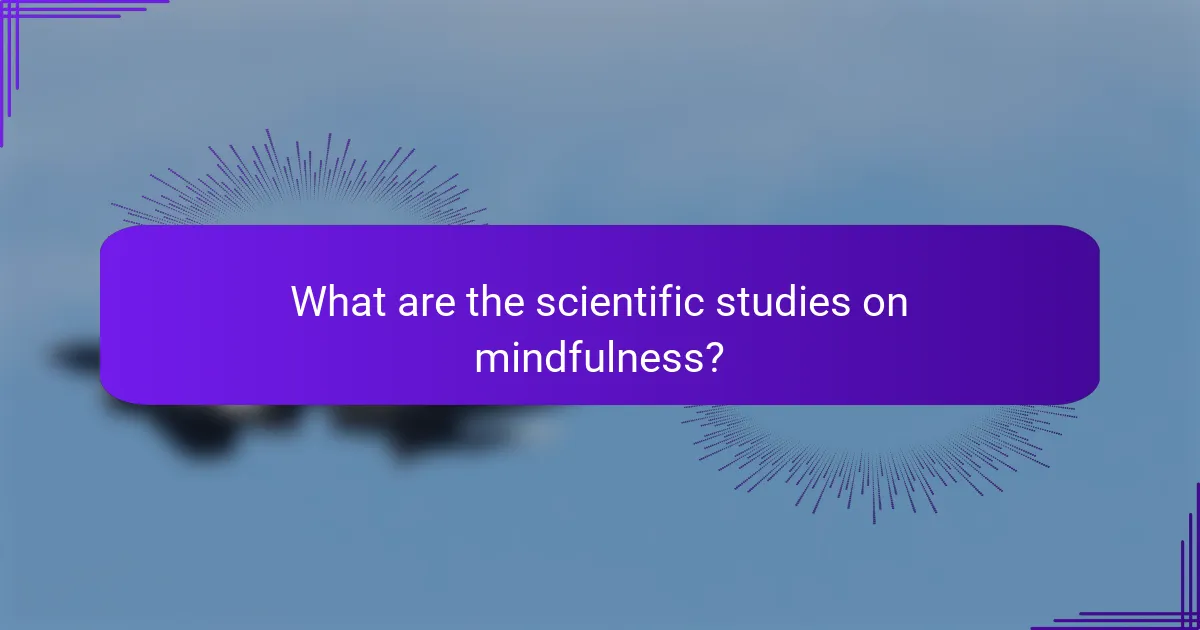
What are the scientific studies on mindfulness?
Numerous scientific studies have explored the effects of mindfulness on the brain, revealing significant insights into its benefits for mental health and cognitive function. Research indicates that mindfulness practices can lead to structural and functional changes in the brain, enhancing emotional regulation and reducing stress.
Harvard study on brain structure
A Harvard study found that mindfulness meditation can lead to measurable changes in brain structure. Participants who engaged in an eight-week mindfulness program showed increased gray matter density in regions associated with memory, sense of self, empathy, and stress regulation.
This study highlights the potential for mindfulness to physically alter the brain, suggesting that consistent practice may enhance cognitive abilities and emotional resilience. The changes were observed using MRI scans, emphasizing the scientific basis for mindfulness’s impact on brain health.
UCLA research on mindfulness and aging
UCLA research has demonstrated that mindfulness practices can positively influence the aging process. The study revealed that older adults who practiced mindfulness showed less age-related decline in cognitive function compared to those who did not engage in such practices.
This suggests that mindfulness may help preserve cognitive abilities as individuals age, potentially delaying the onset of neurodegenerative diseases. Regular mindfulness practice can serve as a proactive approach to maintaining mental acuity in later years.
Johns Hopkins meta-analysis on meditation
A meta-analysis conducted by Johns Hopkins University reviewed multiple studies on meditation, including mindfulness techniques. The analysis concluded that mindfulness meditation can significantly improve anxiety, depression, and pain, with effects comparable to those of antidepressant medications.
This comprehensive review underscores the effectiveness of mindfulness as a therapeutic tool. It suggests that incorporating mindfulness into daily routines can provide substantial mental health benefits, making it a viable option for those seeking alternative or complementary treatments.
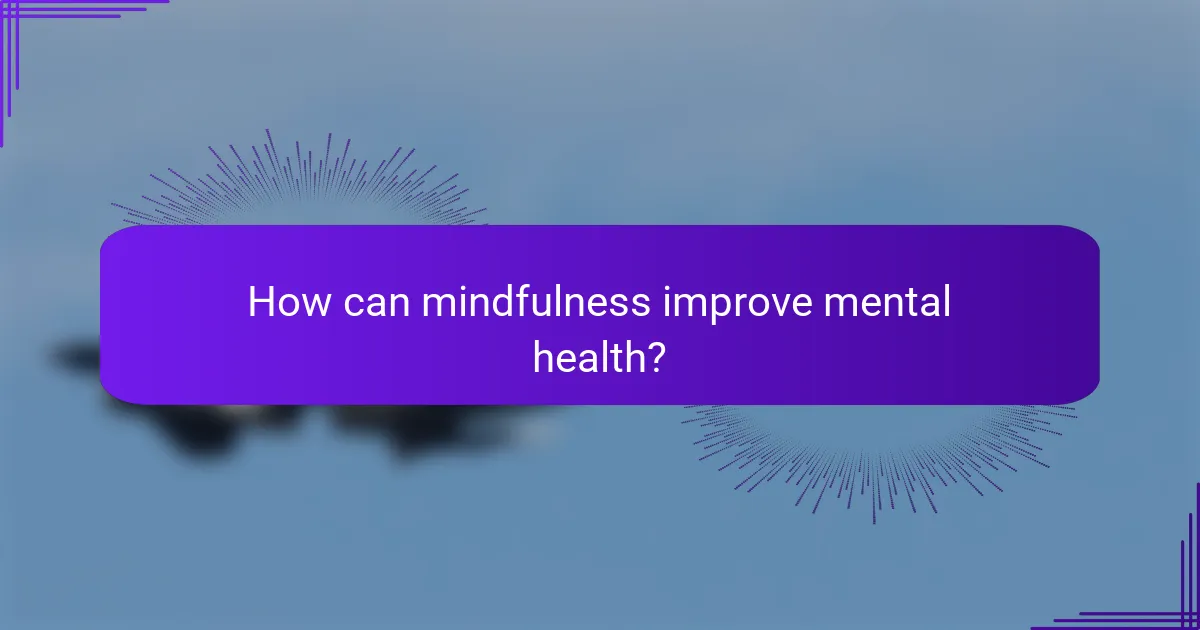
How can mindfulness improve mental health?
Mindfulness can significantly enhance mental health by promoting awareness and acceptance of thoughts and feelings. This practice helps individuals manage stress, reduce anxiety, and foster emotional resilience.
Reduction in anxiety symptoms
Mindfulness techniques, such as meditation and focused breathing, can effectively reduce anxiety symptoms. By encouraging individuals to stay present and observe their thoughts without judgment, mindfulness helps break the cycle of anxious thinking.
Practicing mindfulness for even a few minutes daily can lead to noticeable improvements in anxiety levels. Techniques like the “5-4-3-2-1” grounding exercise, which involves identifying five things you can see, four you can touch, three you can hear, two you can smell, and one you can taste, can be particularly helpful.
Management of depression
Mindfulness can assist in managing depression by promoting a non-reactive awareness of negative thoughts and feelings. This approach allows individuals to recognize depressive patterns without becoming overwhelmed by them.
Regular mindfulness practice, such as guided meditations or mindful journaling, can enhance emotional regulation and reduce depressive symptoms. Engaging in these practices for 10-20 minutes a day can be beneficial for many individuals.
Support for PTSD recovery
Mindfulness can play a crucial role in supporting recovery from PTSD by helping individuals process traumatic memories in a safe and controlled manner. It encourages a sense of safety and grounding, which is essential for trauma recovery.
Techniques like body scans and mindful breathing can help individuals reconnect with their bodies and emotions. Participating in mindfulness-based therapies, such as Mindfulness-Based Stress Reduction (MBSR), can also provide structured support for those dealing with PTSD.
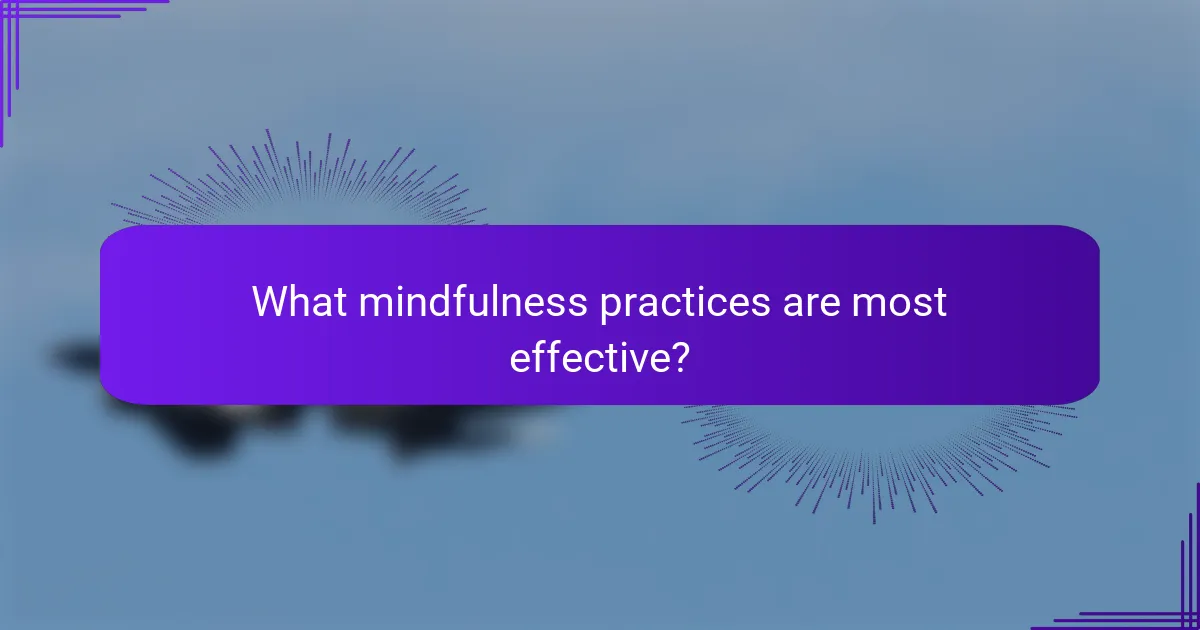
What mindfulness practices are most effective?
The most effective mindfulness practices include mindful breathing techniques, body scan meditation, and guided imagery. These methods help individuals cultivate awareness, reduce stress, and enhance overall mental well-being.
Mindful breathing techniques
Mindful breathing techniques focus on the breath as a way to anchor attention and promote relaxation. Practitioners often inhale deeply through the nose, hold for a few seconds, and exhale slowly through the mouth, repeating this cycle for several minutes.
To enhance the effectiveness of mindful breathing, try counting your breaths or visualizing the air entering and leaving your body. Aim for sessions lasting between five to fifteen minutes, especially during stressful moments.
Body scan meditation
Body scan meditation involves systematically focusing attention on different parts of the body, promoting relaxation and awareness of physical sensations. This practice typically starts at the toes and moves upward, encouraging a deep connection with bodily experiences.
To practice, find a comfortable position and take a few deep breaths. Spend about 30 seconds on each body part, noticing any tension or discomfort. This technique can be particularly effective when done for 10 to 20 minutes before sleep.
Guided imagery
Guided imagery uses visualization to create calming mental images, helping to reduce anxiety and enhance relaxation. This practice often involves imagining peaceful scenes, such as a beach or forest, while focusing on the sensory details of the environment.
To engage in guided imagery, listen to a recorded session or follow a script that leads you through the visualization process. Sessions can last from 5 to 30 minutes, making it a flexible option for various schedules. Consider using this technique during breaks or before bed to promote tranquility.
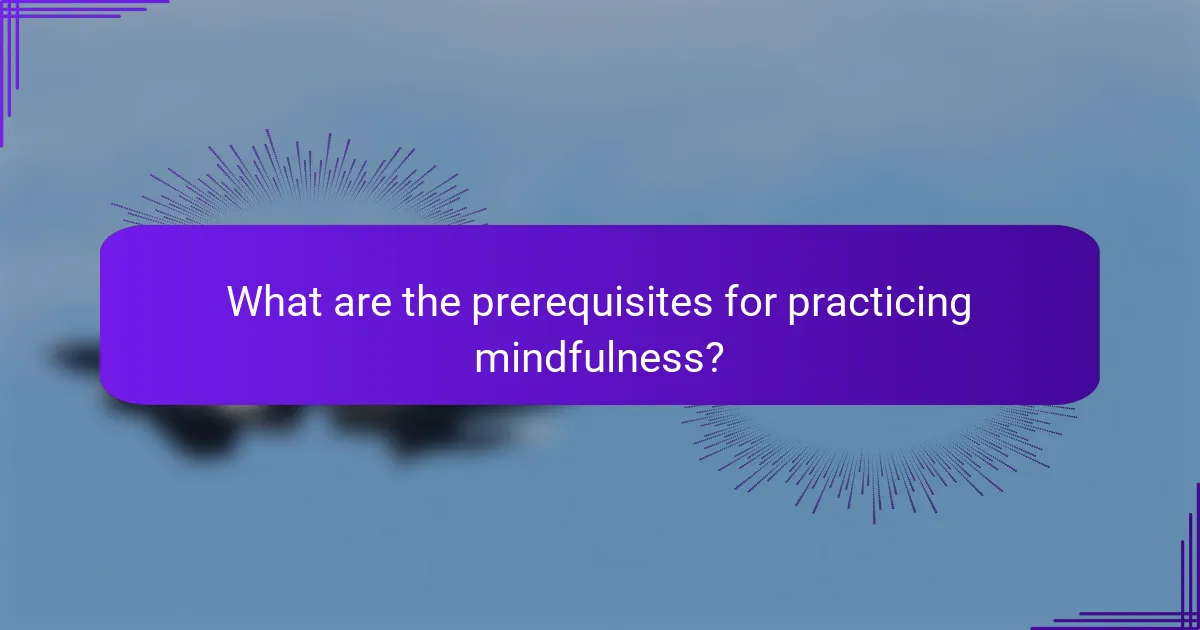
What are the prerequisites for practicing mindfulness?
Practicing mindfulness requires a willingness to engage in the present moment and an openness to self-reflection. Essential prerequisites include a quiet space, a comfortable posture, and a commitment to regular practice.
Creating a conducive environment
A conducive environment is crucial for effective mindfulness practice. Choose a quiet space free from distractions, such as noise or interruptions. Natural light and comfortable seating can enhance your experience.
Consider using calming elements like soft music, candles, or essential oils to create a relaxing atmosphere. These sensory cues can help signal your brain that it’s time to focus inward.
Setting realistic expectations
Setting realistic expectations is vital for maintaining motivation in mindfulness practice. Understand that results may vary, and progress can be gradual. Initially, aim for short sessions, around 5 to 10 minutes, and gradually increase as you become more comfortable.
Be prepared for distractions and wandering thoughts; this is a normal part of the process. Instead of striving for perfection, focus on consistency and self-compassion as you develop your mindfulness skills.
